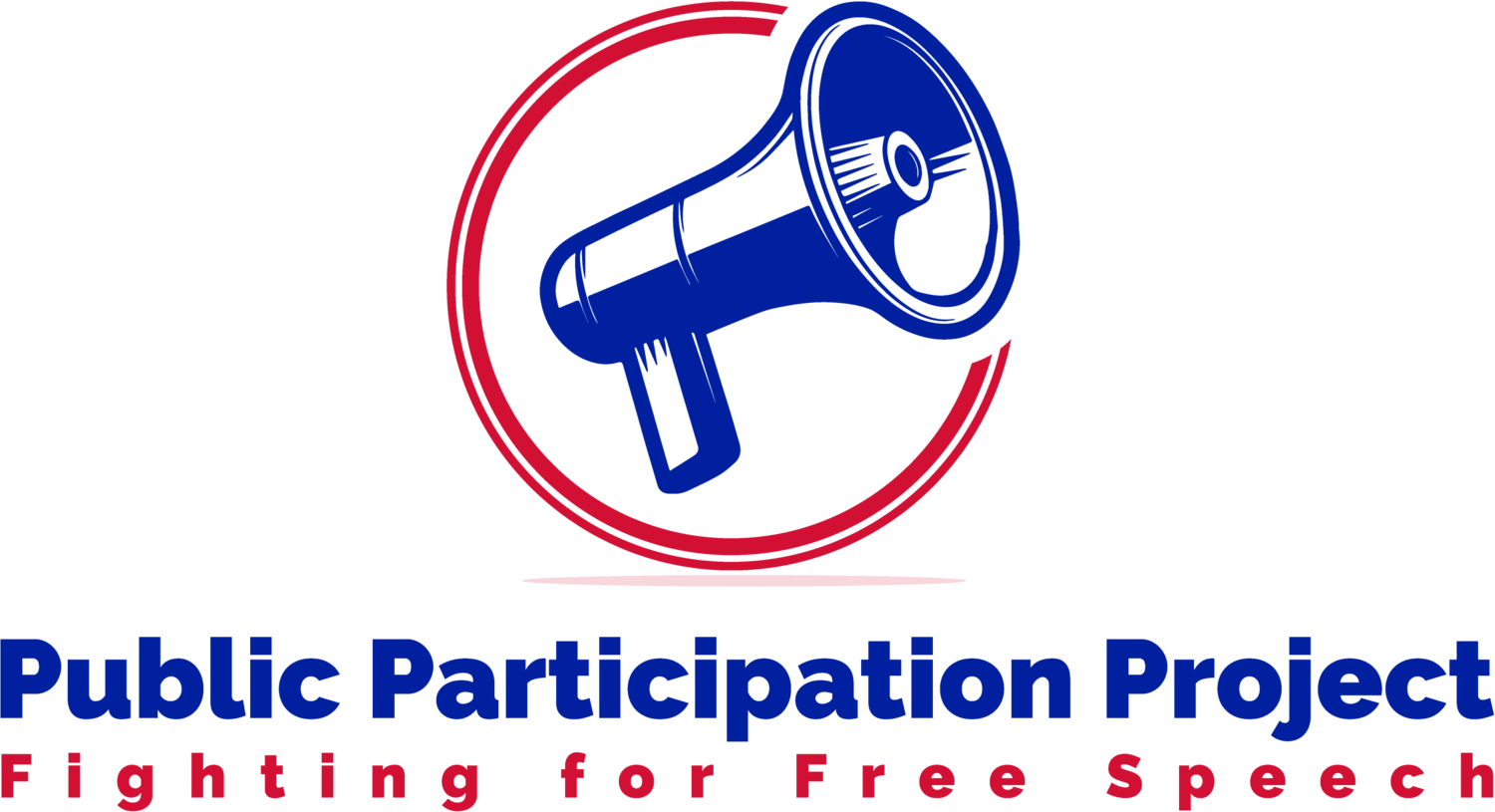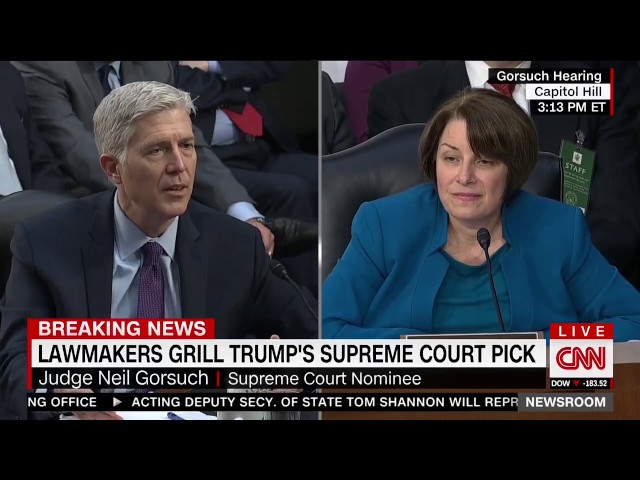The Center for Competitive Politics is pleased to welcome this guest blog post by Samantha Brown of the Federal Anti-SLAPP Project
Politicians Behaving Badly
I gave (my lawyers) a pile of money, and said go get ‘em.
— Local Michigan official, commenting on a lawsuit he brought against the citizen who organized the recall petition against him.
Right now, in Michigan, some interesting events are unfolding in local politics. In September, police stopped Flushing Township Supervisor Don Schwieman for drunk driving. After refusing to stop immediately, he was ordered out of the car at gunpoint, when police discovered he was wearing only inside-out, backwards shorts. The police report indicated that he falsely identified himself as the chief of police and that police found a commemorative police badge in his glove compartment. The report also indicated that Schwieman’s blood alcohol level was three times the legal limit.
The next morning, Schwieman pleaded not guilty to the charges, and some Flushing residents, already highly dissatisfied with direction their local government was taking, decided enough was enough. Calling the entire incident “embarrassing,” Flushing Township resident Gerry Wood initiated a petition to recall Schwieman.
Schwieman was displeased at the recall, but at the time it was filed, asserted that he had “no intention of reading the recall petition’s language.” A couple weeks later, at the end of October, he became convinced that the recall would be successful. A few weeks after that, he must have found time to read the petition, because in December, he decided to sue Wood for libel and slander. For good measure, he also sued the Genesee County Clerk and Election Commission, for “aiding” in said slander.
In a December interview immediately after the lawsuit was filed, Schwieman told the Flint Journal, “I gave [my lawyers] a pile of money, and said go get ‘em.” The lawsuit is ongoing, and Wood and the County Clerk have just submitted motions for dismissal.
Schwieman’s conduct as an elected official is precisely the issue of public interest that we want to encourage citizens to talk about, to debate, and to incorporate into their decisions to vote for or against.
But Wood is now being dragged through the courts for having acted on behalf of his fellow community members. And there is little chance that the suit against him has merit. The U.S. Supreme Court has long held that, in order to win a defamation claim, a public figure who brings suit must show that the defendant he is suing acted with actual malice in disseminating false information. This is an extremely high bar, and the odds are against Schweiman in showing that Wood acted with such malice when filing the petition based upon Schweiman’s drunk driving and other allegations of misconduct.
The Strength of the SLAPP
Retaliatory lawsuits against those who exercise their First Amendment rights, like the suit Schwieman is bringing against Wood, are on the rise. These lawsuits are frequently called SLAPPs (Strategic Lawsuits Against Public Participation). SLAPPs are meritless lawsuits that silence, intimidate and harass those who engage in public life by speaking out on important issues or communicating with the government.
Even a meritless lawsuit can take years and thousands of dollars to defend, which is why the process of the lawsuit itself is such an effective weapon against speech. Faced with a lawsuit, citizens agree to censor themselves, bloggers take down pertinent commentary, newspapers “correct” correct facts, news broadcasts apologize for accurate reports, and organizations prematurely reveal the identity of anonymous speakers. Those who are engaged in the most critical and core of public and political speech—which should garner the most protection—are instead vulnerable to a lawsuit that punishes them for speaking out.
The Scope of the Problem
The use of the courts as a weapon is not limited to one issue, or one side of the aisle. It turns out that everyone loves the First Amendment—until someone says something they don’t like. People across the political spectrum have been sued for speaking out about just about every public issue imaginable. When they are sued, citizens frequently have difficulty securing a lawyer, lose time from work, and face consequences in their communities; organizations and businesses channel their energies into defending a lawsuit, and away from productive activities.
- In New Mexico in 2009, a nonprofit organization sent out educational fliers about members of the New Mexico state legislature. The fliers included voting records and some campaign contributions for each member. The flyers did not endorse a candidate, were sent out months before either the primary or general election and were meant to educate. Several months later, three of the state legislators lost reelection. They sued the nonprofit organization over the fliers, alleging conspiracy and demanding that the election results be vacated. A New Mexico court correctly and summarily disposed of the case, holding that the elected officials lacked standing to bring the suit. But chillingly and incredibly, the New Mexico legislature reacted by considering bills that would impose heightened disclosure requirements on nonprofit organizations engaged in political speech.
- In Missouri in 2004, a handful of concerned citizens, a member of the local Chamber of Commerce and a member of the city council questioned the propriety of a mayor’s appointments to a planning commission. The mayor responded to these questions and critiques by suing everyone who had dared to speak out, including the city council member.
- In 2002, Wisconsin assembly member Julie Lassa sued Alliance for Working Wisconsin (AWW) for mailers raising her supposed connections to Chuck Chvala, former Senate majority leader, who was accused of fraud and other crimes. In a sterling example of core political speech, the postcard asked readers to “call Julie Lassa . . . and the rest and ask them the tough questions–did you compromise your integrity, did you play along with an illegal game, did you misuse tax dollars to win elections?” Although Lassa was reelected to the Assembly with a higher percentage than she had received in the previous election, she sued AWW for defamation, on unclear allegations of harm. See Lassa v. Rongstad, 2006 WI 105 (Wis. 2006) (upholding sanctions against Rongstad for refusing to comply with discovery orders compelling disclosure of AWW members).
The Need for Uniform Protection
Twenty-eight states have enacted “anti-SLAPP” legislation, but the scope of these laws varies dramatically. The remaining states lack protection, and there is no federal anti-SLAPP law. This disparity encourages forum shopping and magnifies the chilling effect of SLAPPs. A blogger in California would normally have that state’s strong anti-SLAPP law as protection, but if a plaintiff can sue the blogger in a state without an anti-SLAPP law, the plaintiff has every incentive to do so. The blogger in California may censor herself for fear of an out-of-state lawsuit, notwithstanding the protection her home state provides.
Representative Steve Cohen (D-Tenn.) is sponsoring H.R. 4364, the Citizen Participation Act. H.R. 4364 encourages civic engagement and protects against meritless lawsuits brought against those who petition the government or speak out on a public issue. The bill has several key components, the most important of which is the ability of a defendant who is hit with a SLAPP to recover attorney’s fees. This critical provision allows a defendant who otherwise could not afford an attorney to secure one on a contingency basis, and disincentivizes the bringing of meritless suits in the first place. Second, the defendant can bring a special, early motion to dismiss, and while the judge is deciding the motion, neither party can take discovery. Because SLAPPs do their work through the process of litigation itself, shortening the process and providing counsel is the only way to combat them. Existing remedies, like a motion to dismiss for failure to state a claim, are inadequate.
The events of the past few years highlight the need for more communication about important issues. A more open, searching dialogue about economic policy, public safety, environmental well-being, national security and government accountability all demand an active, engaged citizenry. Technology now makes it possible for everyone to don the hats of journalist, editor, town crier or anonymous pamphleteer, and we should all welcome a move toward more public participation.
The Supreme Court’s decision in Citizens United v. Federal Election Commission, its hearing of the case United States v. Stevens, and executive rules restricting speech by advocates and lobbyists have renewed an important discussion about the scope of First Amendment guarantees.
Stopping SLAPPs must be a part of that discussion. The use of the courts by private and public entities to gag speech is as effective —or more so—as an outright government ban.
These protections would encourage critical open dialogue, whether it is had in a town hall health care debate, on a cable news network talk show, before a Congressional committee, or on an Internet blog. More than eighty organizations and individuals, including the Center for Competitive Politics, have signed a letter urging the quick and timely passage of H.R. 4364. To sign this letter or otherwise join the effort, please contact Samantha Brown, Legislative Director of FASP, at sb[at]anti-slapp[dot]org. For more information, please see the Federal Anti-SLAPP Project’s website.
Samantha J. Brown is Legislative Director, and heads the Washington, DC office of the Federal Anti-SLAPP Project. She is a graduate of Stanford Law School, where she focused on poverty and civil and criminal rights. She has served as FASP’s Legislative Director since November, 2008.














